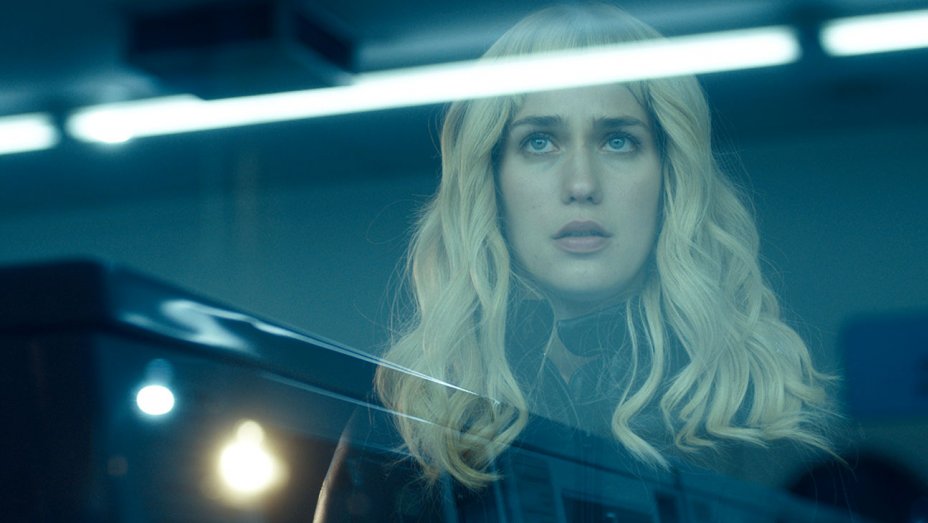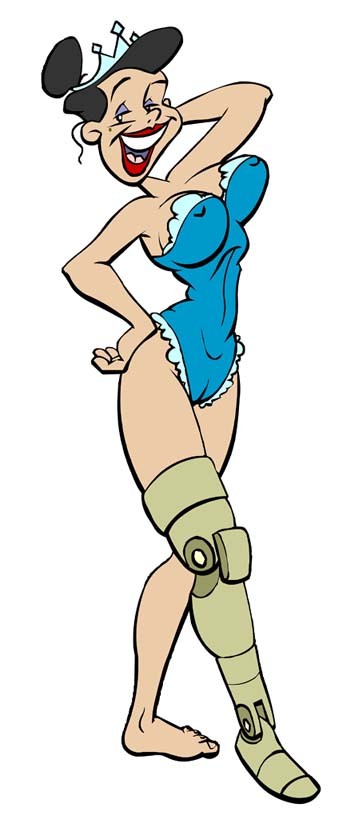
Recently at SXSW '17, I was very fortunate to be able to talk to writer/director Aaron Katz about his new film GEMINI following the second screening of the film at the Alamo Drafthouse. The neo-noir film centers around the loyal assistant (Lola Kirke) of a Hollywood starlet (Zoe Kravitz) who is forced to go down one of the darker rabbit holes in the fabled town to figure out what happened to her boss. John Cho plays the somewhat dubious detective who is also trying to solve the mystery. Among the various festival films, GEMINI really stood out for me, and it is no surprise that Neon picked up the film for a tbd future release. Katz and I grabbed an oversized booth in the darkened Highball lounge that is connected to the theater and delved into noir film making, Hollywood context, as well as the strong female characters who dominate his film.
Annette Kellerman: So great to meet you! How has your fest been? Did your first screening go well?
Kellerman: Sort of in that same thread, the story itself is so uniquely Hollywood with a plot about a starlet and her assistant. As a writer, how did you make that story and dynamic accessible to audiences outside of Hollywood?
Katz: Yeah, I think there's always a danger with writing a movie about something you're familiar with that is your exact- well, not exact- but a world that I interact with a lot, that you have perspective on it. The main thing is to just make the characters human. Their circumstances is really just a way to explore a kind of relationship where the lines between friendship and a professional relationship are blurry, and who has the power is really blurry. Of course Zoe's character literally has the power because she's the employer, and yet she's constantly being taken care of. Jill (Kirke) probably knows more about her life than anyone else, or even than she does. So I hope that people can just relate to the characters.
Kellerman: You really took your time building their friendship in the first act. You really get a sense of how close they are. Can you talk about the dynamic between Zoe and Lola and how you were able to make that come across onscreen?
Katz: We spent a lot of time together beforehand rehearsing, but not rehearsing. We would just go out and have some drinks or a meal or something. Zoe and Lola knew one another before, so they already have a dynamic like that. I'm interested in improvisation, but I really like to have the script as a starting place. To me that lends improvisational style a lot more structure and it feels a lot more real. So, we'd do that, especially when it was scenes that was just them.
Kellerman: It seemed really natural, so it's not surprising to hear that. Some of their conversations sounded like stuff I would say with my girlfriends. But you reigned it in with a general blueprint in the script.
Katz: Yeah. I really try to give the actors the space to do that. Like, physically literally the space- not have the camera right up in their face, and do takes that span the whole scene instead of chop, chop, chopping it into little bits. I think that allows us to discover some stuff and those weird left turns- that sometimes end up going back to the script. Other times we discover something that's so much more interesting than what we planned on.
Kellerman: Can you talk about creating such a strong female story? I love these characters. They're actually very layered. Can you talk about the choice to have the film led by an almost all female cast?
Katz: It started with Lola. It started with just loving her in MISTRESS AMERICA and just thinking that she is a really, really great actress.
Kellerman: She's terrific.
Katz: She talked in the Q and A about how much we contributed together, and I think the reason that those female characters are so strong is because I brought them into the process. We worked on it together, and I think that Zoe and Lola's voices are definitely in the movie. Lola has said before that her character is like a female version of me or something (we both laugh), which I don't think is totally true. In some ways I just try to write characters as...
Kellerman: As people.
Katz: As people. Like how I would deal with it and that situation.
Kellerman: Sometimes I wonder if it's overt, like this role has to be played by a woman, or could you have just as easily seen the role with a male counterpart instead?
Katz: I don't know. I mean, it didn't come up that way. I never asked that question. My last movie was set in Iceland, and a lot of times I get asked if I could've set it somewhere else. Could it have been in Hawaii? Like, why Iceland? I guess I have the same answer. That was the story, and it felt like there was so much of a dynamic already and I was already thinking in that direction, getting emotionally involved in who these people were. I don't know. I don't know what that version would be like!
Kellerman: So, you nailed the noir genre. Are there other genres you'd like to explore?
Katz: I am interested in doing a straight up thriller. I really love movies like AMERICAN GIGOLO- it's such a perfect movie. I'd love to do something that's more a straight thriller. As far as horror, I don't love super violent horror, but I do love suspense horror.
Kellerman: Psychological horror.
Katz: Yeah. I think HALLOWEEN is one of the greatest movies ever. Or ALIEN, which is also one of my favorite movies, and I would love to work in those genres. To me, finding a way to work in a genre and also explore a character is really important. Comedy-wise, the last film I did was a PLANES, TRAINS, AND AUTOMOBILES type movie, so any genre can be interesting if it's the right project. So right now, thriller/suspense is my thing. Some of the most successful explorations of character are things that are either genre, or comedy. By not being so overt about what you're trying to explore, I think it can actually be more moving. For example, TONI ERDMANN is so great. I love it so much!
Kellerman: Ugh! I missed it at Fantastic Fest this year, and I still haven't had a chance to check it out!
Katz: It's so funny. It a gut-busting comedy, but it also has so much to say about contemporary life and it's really melancholy. I think it couldn't have succeeded at that as much if it was just a really dour story about a woman and her father. It wouldn't have been nearly as exciting.
Kellerman: With genre films, you have this incredible context that gives you tools to explore characters and put them in situations that are not exactly normal.
Katz: Right, when the situation is heightened I think you find out a lot about who somebody is.
Kellerman: I believe you mentioned it in the Q and A after the screening, but you wrote the role of Jill specifically for Lola? Had you worked together before?
Katz: No, I never met Lola! I just really liked her in MISTRESS AMERICA, and at that time I really wanted to write a Los Angeles-set thriller. Yeah, I remember I saw that movie in August of 2015, and just started writing. Because all of a sudden I was like, I just know what this character is. I can picture Lola playing this character, and I had no idea if she'd want to do the movie or not.
Kellerman: And then she says no, and you're stuck with someone else!
Katz: I mean, even with that circumstance I really like writing with someone's voice in mind. Of course I only knew her from that [MISTRESS AMERICA] and from GONE GIRL. I don't know, it just makes it a lot more specific, and I was just really hoping she's say yes.
Kellerman: You also mentioned in the Q and A that there were no alternate endings, that this is exactly how you saw it. I really appreciate...sometimes in a lot of thriller these days there's just twist on twist on twist in the third act. I can really appreciate a simple, straightforward story too. Once you reach a conclusion, that's it. There's no big stinger waiting at the end. Can you talk about going for that type of story versus putting more twists in it.
Katz: It occurred to me to put more twists in it. For example, WILD THINGS which has like 8 twists. I've never seen any WILD THINGS sequels, but I remember one night my wife was just reading synopses for WILD THINGS sequels- of which there's, like, 6. There are so many insane twists.
Kellerman: Ha! That's a perfect example. When I first saw that movie I remember being like, holy shit! The entire thing plays out in the eleventh hour! I didn't see that coming at all. And maybe I've been jaded over the years- you're almost waiting for something else. So it's kind of refreshing when it can be a straightforward, clever story. I appreciate that.
Katz: Yeah, and I think that I really wanted to honor the genre we were working in as well as the characters inhabiting this world. I think this is my way of balancing those two things. I think all the pieces are in there and maybe people are putting them together when they arrive there. I think if there is any twist, it's that everyone has their own version of the truth. John Cho's character, and Zoe's character, and Lola's character all have, maybe, a little different idea about what happened and also how their going to present what happened to the world.
Kellerman: Well, it's probably time to wrap this up! Is there anything you'd like to leave off with?
Katz: I talked about it in the Q and A, but working with great actors and having that collaboration is so great.
Kellerman: And you worked with a lot of your old homies from film school too! Your DP?
Katz: Yeah! Andrew. I think our school (North Caroline School of The Arts) tends to lend itself to that. David Gordon Green works with many of the same people, Jeff Nichols also went there, Craig Zobel....it's a really small school, and it's also really production oriented. We all have a chance to work together a lot during school, so I think you find collaborators who are really gonna be partners for hopefully a long time.
Kellerman: Very cool! That's a perfect note to end on then. Thank you so much for taking your time to talk to me in the middle of the SXSW madness. I really appreciate it!
Katz: Thank you!
I thoroughly enjoyed talking to Aaron Katz about his latest endeavor, and thanks to Neon the film will be finding its way to a screen near you! Be on the look out for GEMINI and don't pass up the chance to check it out. Thanks so much for reading.
Rebecca Elliott
aka Annette Kellerman

